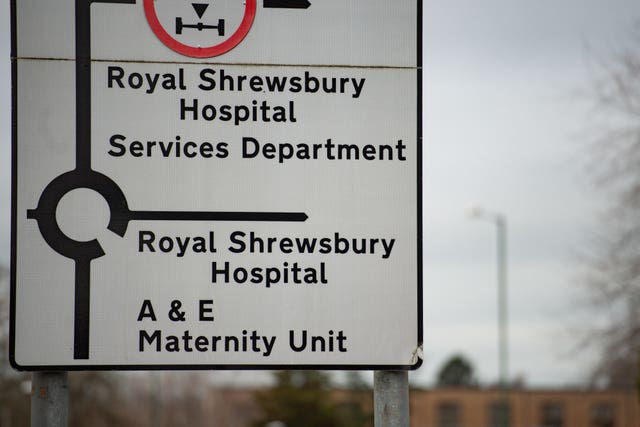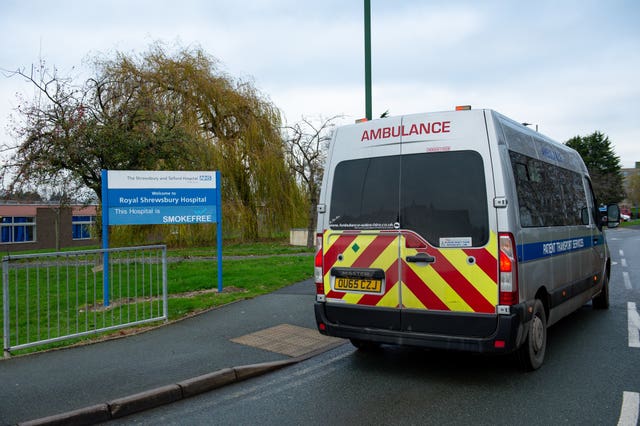Families were often treated unkindly, echoed in women’s medical records and in documents provided to the inquiry by the trust and families.
30 March 2022
Investigator Donna Ockenden’s team has recorded the harrowing stories of children and mothers dying at the hands of the Shrewsbury and Telford Hospital NHS Trust.
In some cases, women were blamed for losing their babies, while others had their concerns and complaints dismissed, compounding their grief at losing a child.
Families were often treated unkindly – echoed in women’s medical records, in documents provided to the inquiry by the trust and families, and in letters sent to families by the trust.
In her interim report in December 2020, former senior midwife Ms Ockenden described how, in 2011, a woman was in agony but was told that it was “nothing”, while staff were dismissive and made her feel “pathetic”. One obstetrician was abrupt and called her “lazy”.


In a 2013 case investigated by the inquiry, a woman was left in great pain after delivery and screamed for hours before staff realised there were problems that needed intervention.
In 2009, despite a woman having known risk factors, her care was not escalated to more senior staff, and errors were made in monitoring the baby during labour.
Even after birth, the baby was not monitored despite clear warning signs, and was transferred, too late, to a specialist unit where it died.
Other cases recorded by Ms Ockenden’s team are equally distressing, with one baby dying in 2016 after the mother was not adequately monitored due to the unit being “busy”.
In this case, the baby was delivered in a very poor condition having suffered a brain injury due to inappropriate care.
Then in 2017, a woman suffered a catastrophic haemorrhage and later died.


Her family stated that there had not been an explanation of the risks of birth in the midwifery-led unit, nor information on the need for transfer if complications arose.
In a significant number of cases, Ms Ockenden’s review team found that the clinical care and decision-making of midwives at the trust did not demonstrate the appropriate level of competence, and there were failures to escalate issues to senior staff.
In some cases, there was also poor consultant oversight of mothers with high-risk pregnancies, and they either remained under midwifery-led care or were managed by obstetricians in training.
In 2011, a new mother died after delays treating her severe high blood pressure.
Following delivery, there was a further delay in seeking senior clinical advice. She subsequently died in another hospital.
In one 2016 case investigated by Ms Ockenden, a pregnant woman with known large uterine fibroids was not referred to an obstetrician as she should have been.
Errors were made in recording the baby’s growth and it died on the day of birth from a severe hypoxic (low oxygen) birth injury.


Another baby died in 2006 after the mother was given oxytocin in labour, despite it not being recommended for a breech baby. This baby was born in very poor condition and died a few days later.
Ms Ockenden’s review further noted there were cases where women were given drugs inappropriately despite abnormal scans.
As a result, some babies were born with brain injury, cerebral palsy, or were stillborn or died soon after.
In other errors, midwives recorded the mother’s heart rate instead of the baby’s, with serious consequences and one baby death. This was as recently as 2015.
Also in 2015, despite a mother requesting a Caesarean following a previous one, her request was denied.
After a complicated natural birth, the baby died a few days later from hypoxic brain injury and complications of shoulder dystocia (where the baby’s head is born but one of the shoulders becomes stuck).


A subsequent investigation failed to acknowledge omissions in care.
Ms Ockenden’s reports have said there were many opportunities to learn from incidents, but these did not happen.
In 2015, a woman in labour at the midwife-led birth centre was not adequately monitored.
When problems were eventually identified in labour there was a delay in transferring her to the labour ward, where her baby was delivered in very poor condition and suffered brain damage.
The baby subsequently died.
The review team also found evidence of repeated attempts at vaginal delivery with forceps, sometimes using excessive force.
It said there was clear evidence that obstetricians were not following established local or national guidelines for safe deliveries of this type.
In one case, in 2007, repeated attempts at forceps delivery left a baby with multiple skull fractures. It subsequently died.
In another case, a woman known to have a big baby was refused her request for a Caesarean. She had a forceps delivery and the baby had shoulder dystocia and suffered a fracture.
One baby in 2017 died following a traumatic forceps delivery by two doctors, while another woman had repeated forceps, leading to the baby having skull fractures and developing cerebral palsy.
Ms Ockenden said in her interim report that some of these deliveries were undertaken by consultant obstetricians, which was “particularly concerning”.



